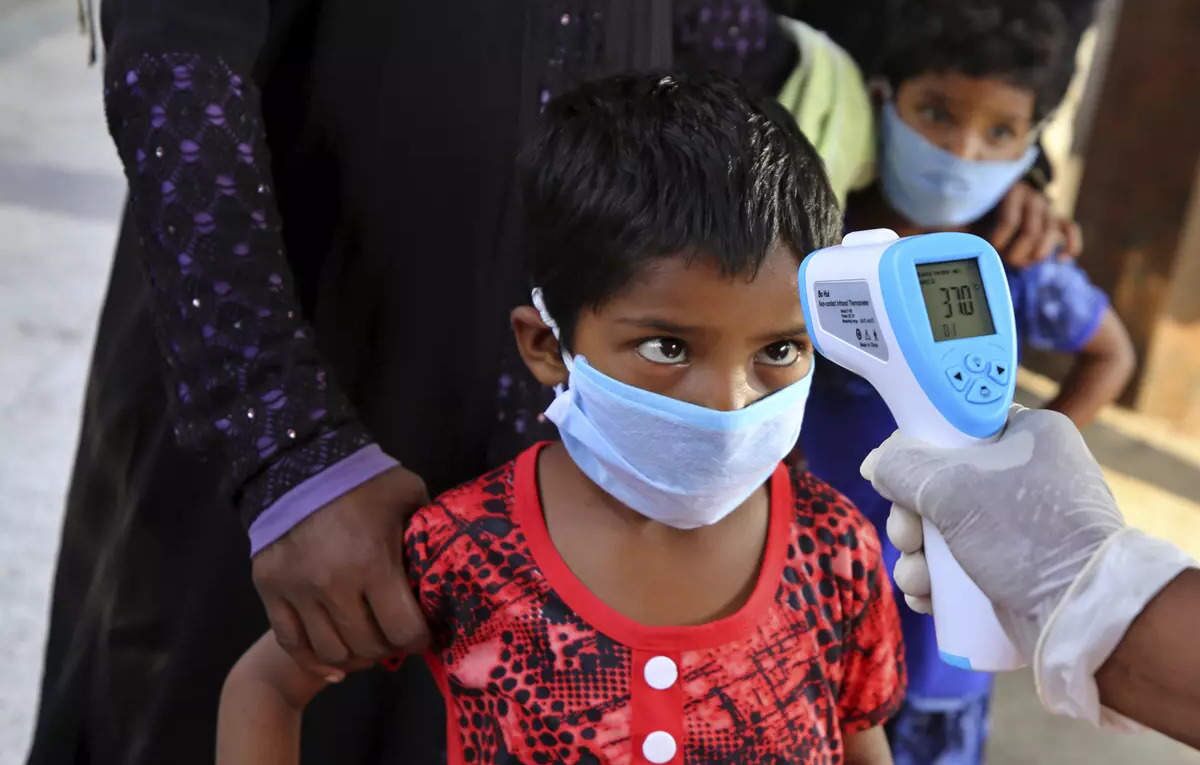Table of Contents
We need to talk about COVID-19 because there are more cases happening in India – 752 in the last day. But don’t worry too much. Experts say a new type called JN 0.1 is not a big problem. What’s important is to keep our kids and older people safe want to make sure our kids breathe well. If they have any problems breathing, it’s important to get help from a doctor. Keep an eye on them. Wear masks, stay away a bit from others, and wash hands a lot.
These things help stop the germ from spreading. Make sure kids see the doctor regularly. Even if they seem okay, it’s good to check to catch any problems early.
If someone in the family or close by is sick, it’s better for kids to stay away for a bit. This helps keep everyone safe. Look out for any signs of being sick, like a cough, fever, or feeling tired. If you see this, talk to a doctor. Germs can stay on things, so it’s a good idea to clean toys and surfaces often. This keeps everything nice and safe.
With more COVID cases and winter arriving, we need to be extra careful, especially about our kids’ breathing. Even small signs of sickness shouldn’t be ignored. Let’s talk about how we can take care of our little ones during this time. Keep an eye out for any signs that your child might be feeling unwell. Things like a small cough or feeling a bit tired should be taken seriously. If your child has any little health problems, it’s best to talk to a doctor. Don’t wait for things to get worse. Getting help early is always a good idea.
In winter, it’s important to keep our kids warm. Dress them in cozy clothes to protect them from the cold and keep their chests warm. Even if your child feels okay, it’s good to keep using masks and washing hands a lot. This helps prevent sickness from spreading. If someone in the family or nearby is sick, it’s better for your child to stay away for a bit. This helps keep everyone safe.
Covid-19 Vaccination:
One of the most effective measures to protect children from severe outcomes of COVID-19 is vaccination. Authorities have expanded vaccine eligibility to include younger age groups, and ongoing research indicates the safety and efficacy of these vaccines for children. Stay informed about vaccination schedules, consult with paediatricians, and ensure your child receives the recommended doses.
Testing and Monitoring:
Regular testing, especially if your child shows symptoms or has been in close contact with a confirmed case, is crucial for early detection and containment. Stay informed about testing centers in your area, and make it a routine part of your family’s health practices. Additionally, monitor your child for symptoms such as fever, cough, and fatigue, and seek medical advice promptly if any arise.
Ventilation and Outdoor Activities:
Promoting outdoor activities can significantly reduce the risk of virus transmission. Encourage your children to play and socialize in open-air environments where ventilation is naturally better. If indoor activities are unavoidable, ensure proper ventilation by opening windows and doors to allow fresh air circulation.
Community Engagement:
Building a sense of community is integral to navigating these challenging times. Stay connected with other parents, share information, and support one another. Community initiatives such as carpooling for school or arranging outdoor playdates with safety measures in place can help strike a balance between socialization and safety.
Conclusion:
As we confront another surge in COVID-19 cases, safeguarding our children requires a multifaceted approach. From vaccinations to hygiene practices and emotional support, every measure plays a crucial role in ensuring their safety. Stay informed, adapt to evolving guidelines, and prioritize the well-being of your family and community. Together, we can navigate these challenging times and protect the youngest members of our society.
